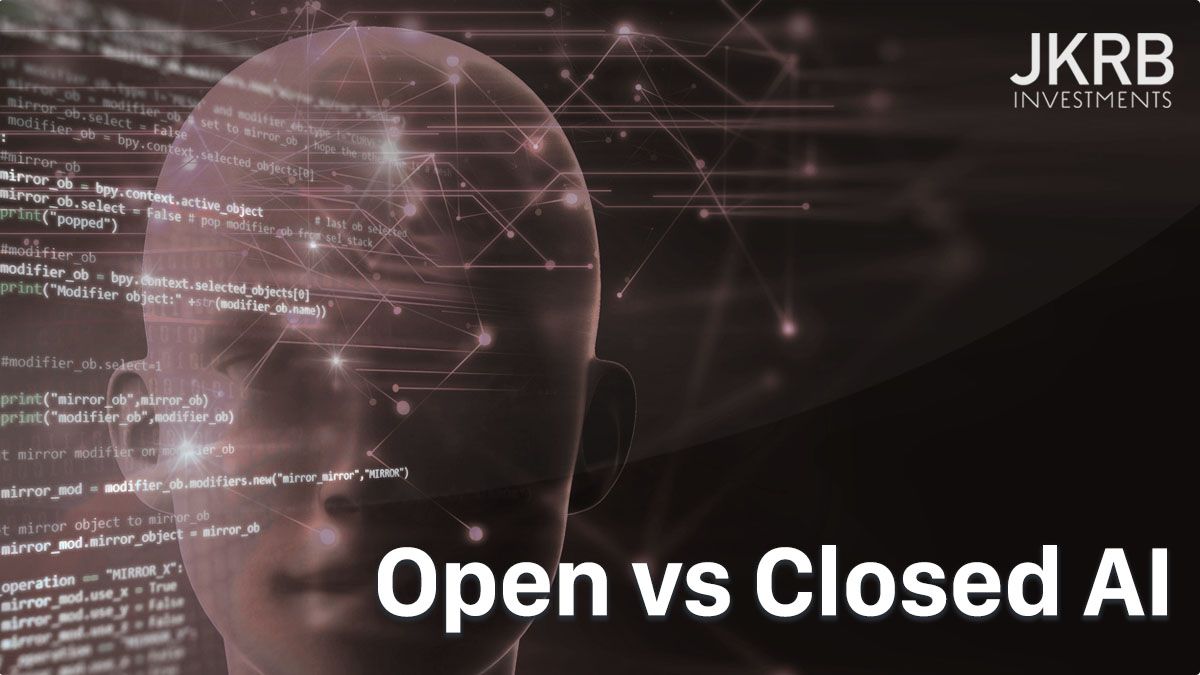Open vs Closed AI

This week, Chris Paine released his AI documentary Don’t Trust This Computer, which showcases the state of AI and the challenges we face as we reach super intelligence and beyond.
Super intelligence is a term used for AI intelligence considerably smarter than of a human. This level of AI is generally termed as ASI, artificial super intelligence - and we are heading there at a quick pace.
The crossroad to ASI is AGI, artificial general intelligence. This intelligence matches that of a human. Elon Musk predicts we will reach this level in the next decade, with a general consensus we will reach this in the next 5 - 50 years.
However given growth projections, the AI will not stay here long, and continue its evolution to ASI, which would take a matter of days or weeks after breaking the AGI threshold.
So there are considerable challenges ahead if we are to control super intelligence - how can we control something that is superiorly smarter than it’s creators? One of the answers to this is to become part of the AI with devices that communicate directly with our memory and consciousness, enhancing our perceptions that will connect us with a singular super intelligence entity.
We do not want super intelligence to exclusively be owned by one or a select few entities. At this moment Google are the most likely candidate to be the first to break into AGI. They are on the path of expanding their millions of servers, buying deep learning and robotics start ups at a rapid pace, and experimenting with a multitude of AI products including their Boston Dynamics catalogue of robots, AI in Google’s suite of online products such as Gmail, search etc, autonomous driving, and more.
One party in control of intelligence can utilise it to force their agendas, whether they deem them positive or negative.
Google’s agenda appears to be on a corporate level, whereby they sell their AI products to clients in exchange for monetary gain. For example, the US Marines funded Boston Dynamics LS3 (Legged Squat Support System) robot to help transport cargo in various terrains.
There are undoubtedly other players developing intelligence behind closed doors. Given the secretive nature of competitive technology, we are unlikely to be exposed to breakthroughs until patents are filed.
However we are also seeing huge AI interest in the open source community. It is indeed possible to utilise Blockchain technology to distribute trusted data for all to use in training their AI, and startups are already experimenting with these capabilities.
Blockchain scalability solutions will ultimately unlock the door for big data on Blockchain. When this happens, huge libraries of trusted, verified data will be accessible to anyone with the desire. Ethereum is a strong contender to support such a system, having conducted over 4 years of research into scaling their Blockchain whilst maintaining decentralisation. We will begin to see this research being applied to the Blockchain later this year.
We see a solution of smart contracts autonomously managing datasets and connecting to other distributed systems to access such data in exchange for tokens to process the request.
Utilising resources over a decentralised distribution is an alternative solution to centralised tech giants running huge server farms in their own facilities.
How long do you think it will be before the former overtakes the latter?